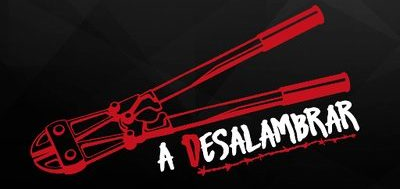 |
Basque Info from Belfast
Information about the basque people and the conflict, every week from Belfast.
- Basque pro-independence march celebrates American nations’ independence
- Manifesto in favour of self-determination signed
- New torture reports revealed
Basque pro-independence march celebrates American nations’ independence
On October 12 5,200 people demonstrated in favour of independence in the historical Basque capital of Irunea/Pamplona. The march was organised by Independendistak, the broad, pluralist citizens’ network created this year to work in favour of independence at the grass-roots level.
The day chosen for the march was the so-called Spanish National Day, celebrated by the Spanish authorities and right wing with a military parade in Madrid. This day was also called Victory Day and Race Day in the past and celebrates the conquest of the Americas by the Spanish Kingdom 500 years ago.
Speakers at the pro-independence march congratulated the Central and South American countries that marked the 200th anniversary of gaining independence from Spain. People from those nations who live in the Basque Country were among those holding the march’s banner. They also proudly held their flags. They were warmly welcomed by the speakers who encouraged them and other immigrant people to join the pro-independence movement and play an important role.
The speakers said the 12th of October is not a day of celebration for the American nations that suffered the Spanish invasion and neither is it for the Basque Country that suffered conquest a few years later.
The speakers concluded by saying they don’t want to impose independence but rather respect the Basque citizens’ democratic will. They addressed the French and Spanish authorities by asking them whether they would respect the free will of Basques.
Manifesto in favour of self-determination signed
Dozens of well-known politicians, trade unionists, artists, writers and sports men and women gathered in Donostia/San Sebastian last Saturday to sign and launch a manifesto in favour of self-determination for the Basque Country.
Among those who attended the event were representatives of all the Basque nationalist parties.
The manifesto calls on people of all ideologies to join forces in favour of this democratic right.
Those who signed the manifesto committed themselves to demand this right in the Basque Country and internationally.
They also called people to take part next Saturday October 16th in a historical day full of events organised in the Basque town of Ordizia, which will see Scottish visitors and Basques come together in favour of self-determination through sport and culture. This is a huge event that follows many others in ongoing joint work between the Scottish and Basques.
One of the organisers said Scotland is going through a crucial time and Basques follow that process with interest.
New torture reports revealed
Two Basque citizens recently arrested by the Spanish police and accused of being part of an ETA unit have stated that they were subjected to terrible torture. According to the Spanish police and media they confessed they received military training in Venezuela. The news sparked a new controversy against the revolutionary government of Hugo Chavez which is part of an on going criminalisation campaign.
Now that the torture reports emerged the arrested deny they ever got any training in Venezuela and they say the police imposed the confession on them. They have also been accused of killing a right-wing pro-Spanish councillor. Some years ago four Basques spent four years in jail after being tortured and confessing to this attack but were finally released when it was proved the allegations weren’t true.
These latest torture reports include beatings, suffocation with plastic bags, excersice which made them sweat a lot followed by being transferred to some sort of fridge were they would spend some time shaking. They were also wrapped in blankets to be beaten and were sprayed some sort of chemical which temporarily paralyzed them. They were permanently blindfolded and they were forced to hear the other person screaming while being tortured.
They were in such a devastated condition when they were taken in front of the judge that even the state solicitor they were assigned refused to sign their declarations.
People took to the streets in many towns across the Basque Country to protest against torture and membes of the parliament and councillors in many places presented motions against this terrible practice.
